How to Access the Dark Web and Deep Web, Safely and Anonymously
To the unitiated, the dark and deep web may sound equal parts mysterious and terrifying–and that’s kind of true, unless you know how browse these corners of the Internet anonymously. Today, we share essential tips for staying safe on the deep and dark web. Don’t worry, it’s easy to get started–the first step is as simple as installing a VPN.
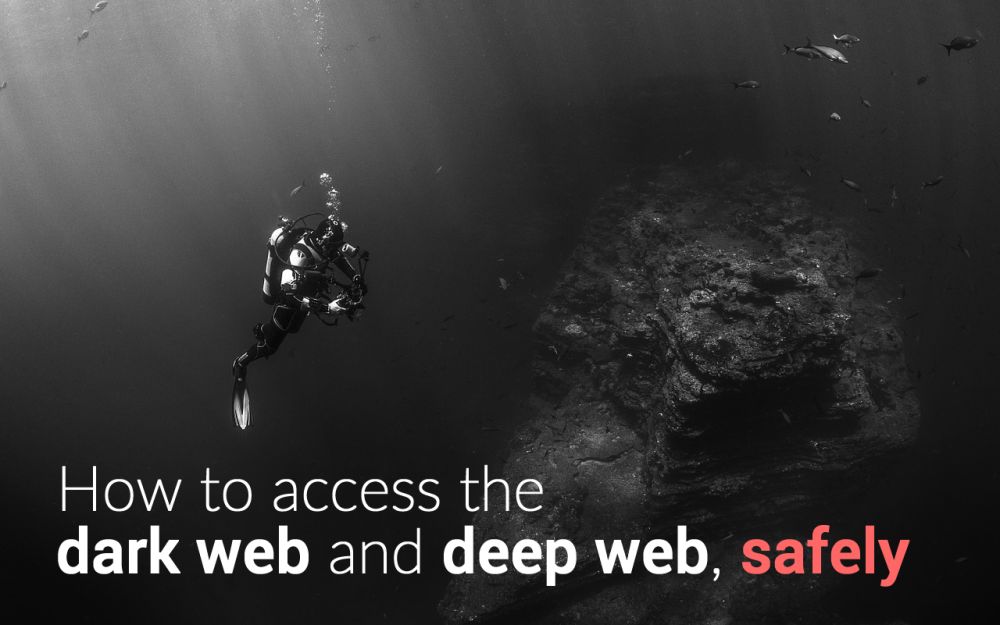
The internet we’re familiar with is only a fraction of what’s really out there. Just below the surface lies the deep web and the dark web, areas that contain countless difficult to find websites, marketplaces, blogs, social sites, and more.
For the safest access to the darknet and deep web, use these VPNs:
- NordVPN – Best darknet VPN – NordVPN offers unbreakable cryptography, double VPN, obfuscation, and everything you need to stay anonymous on the deep web.
- Surfshark – Leak protection, obfuscated servers, and an incredible logging policy.
- IPVanish – The classic choice for deep web security. Fast connections.
- VyprVPN – Novel encryption protocols, plus self-owned network for true anonymity.
The staggering amount of content goes unnoticed by most, but with a little effort and a lot of privacy awareness, it’s easy to crack open the dark web to see what hidden wonders wait inside. Follow our guide below to get started browsing the deep and dark web safely and anonymously.
What are the Deep Web and the Dark Web?
Think of the internet as an ocean. Most people are content to surf along the surface and catch the big waves that float their way. Streaming videos, checking e-mail, shopping, browsing Facebook, and other online activities take place here, out in the open. If you can find it through a search engine like Google or Bing, it’s part of the surface web.
Dip below the waves and you reach the murky waters of the deep web. Content in the deep web isn’t indexed by search engines, making it more difficult or even impossible to find by random chance. Most of this content isn’t malicious or illegal, however. Things like membership pages secured by login screens, privately hosted servers, or internal company websites are part of the deep web. They exist online but search engines can’t find them, taking them a step below the surface to the deep web.
The dark web is where things get interesting. Similar to the deep web, dark web content is invisible to search engines and can’t be found through traditional means. The key difference is sites on the dark web are intentionally hard to find, allowing them to conceal information or act as centers of illegal activity. Black markets, counterfeit goods, drugs and weapons dealers, and a host of other things can be found in the dark web, but only if you know exactly where to look. The dark web is usually what people think about when talking about underground internet activity. It’s just one part of the deep web, but it stirs up a lot of controversy.
Safety on the Dark Web
The dark web has a number of practical uses, not all of which are sketchy. People who live under governments that heavily monitor or censor internet traffic benefit from dark web access, as it allows them to view news from the rest of the world or even order supplies they can’t obtain in their country. Whistleblowers and journalists also use the dark web to communicate without giving up their location or private details.
No matter its purpose, the dark web isn’t a safe place. Anonymity has its drawbacks, and coupled with the unmonitored nature of the dark web it’s a haven for hackers looking to steal information and take advantage of unsuspecting visitors. Just accessing the dark web can be a suspicious act, let alone downloading or viewing illegal content. If you’re planning to use the dark web, you need to take every precaution to protect your identity. There’s no such thing as being too careful.
Using the dark web isn’t as simple as opening a browser and typing in an address. Before diving in, you’ll need to download and configure several pieces of software that help encrypt and anonymize your data.
Use a VPN for anonymity
Always use a VPN when you access the dark web, without exception. VPNs encrypt all internet traffic leaving your computer, scrambling the data so that no identifying details can be discerned. VPNs also route traffic through non-local servers to provide an extra layer of anonymity. If you don’t use a VPN on the dark web, you’re broadcasting your name and location to the world. It’s a risk you should never take.
Not all VPN services provide the same level of security, however. We used the key criteria below to find VPNs that deliver a higher level of privacy for users curious about the dark web.
- Kill switch feature – Having a kill switch in place can mean the difference between protecting your identity and divulging your information. With a kill switch in place, the provider’s software will automatically shut down all internet traffic if you lose your connection to the VPN. Even a temporary lapse can give hackers a lot of info, so having a kill switch is a necessity on the dark web.
- Logging policy – Good VPN providers have a no-nonsense zero-log policy in place to ensure data is never stored on their servers. If data is kept for any amount of time, even if it’s encrypted, there’s risk of it being stolen or turned over to third parties. No logs means there’s no data, plain and simple.
- Speed – VPNs can slow your internet connection down by as much as 10-25% due to encryption overhead and traffic rerouting. It’s a largely unavoidable drawback, but some providers go to extra lengths to minimize it as much as possible. The VPN services below have demonstrated some of the fastest connection speeds on the market.
- Bandwidth limitations – A common practice for VPNs is to limit the speed or amount of data users can consume within each billing period. Once that’s been met, no more dark net access. All of the providers below feature unlimited plans with no caps or restrictions.
Most secure VPNs to protect yourself on the dark and deep web
1. NordVPN

NordVPN has one of the most unique security features of any VPN provider. Instead of simple single encryption, all data that passes through NordVPN’s network gets scrambled twice, creating 2048-bit SSL encryption even a supercomputer can’t crack. A fantastic zero-logging policy, bitcoin payments, and an automatic kill switch for Windows, Mac, iOS, and Android versions of the software makes NordVPN an excellent choice for a safe companion through the dark web.
NordVPN has a constantly growing network of over 5,500 servers in 58 countries.
Read our full NordVPN review.
- SPECIAL OFFER: 2-yr plan (70% off - link below)
- Extensive server park of over 5,400 different servers
- Connect up to 6 devices at once
- “Double” data protection
- 24/7 Live Chat.
- Some servers can have average d/l speeds
- Sometimes slow in procesing refunds (but always do).
2. Surfshark
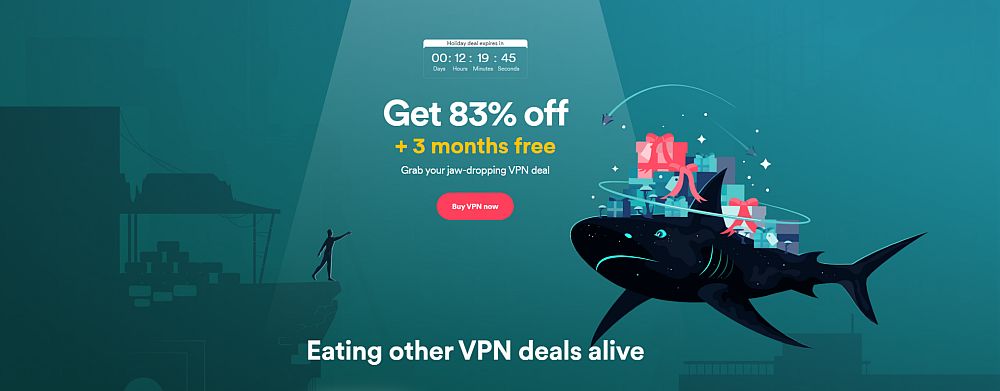
Surfshark has quite a few items of interest for deep web users in search of privacy. First and foremost is the unbreakable encryption, with AES-256-GCM to completely shroud your VPN connection. On the subject of connections, there’s a modest-but-growing network of over 800 servers, distributed throughout every continent but Antarctica.
What Surfshark does differently, it does generously. For example, rather that limiting you to a few specialty servers, every server can make use of their Camouflage obfuscation method. Moreover, they never limit the number of simultaneous connections you can have, enabling you to protect all your devices (plus friends and family, if you want).
Worried about leaks on the darknet or deep web? Surfshark comes preinstalled with protective measures against IP, DNS, and even WebRTC leaks. Moreover, there’s a kill switch; while the RAM-only server infrastructure regularly wipes VPN user data. Backed by an audited no-logging guarantee, Surfshark is the perfect companion on your darknet journeys.
- Break through harsh censorship to securely access social media and foreign news sites
- Multi-hop connections readily available
- Trial in confidence with a 30-day money back guarantee
- Based in the British Virgin Islands, where there are no data retention laws
- 24/7 live chat ensures maximum uptime.
- Growing network doesn’t have same coverage as more mature VPNs
- Power users may wish for more settings to fiddle with.
Read our full Surfshark review.
3. IPVanish
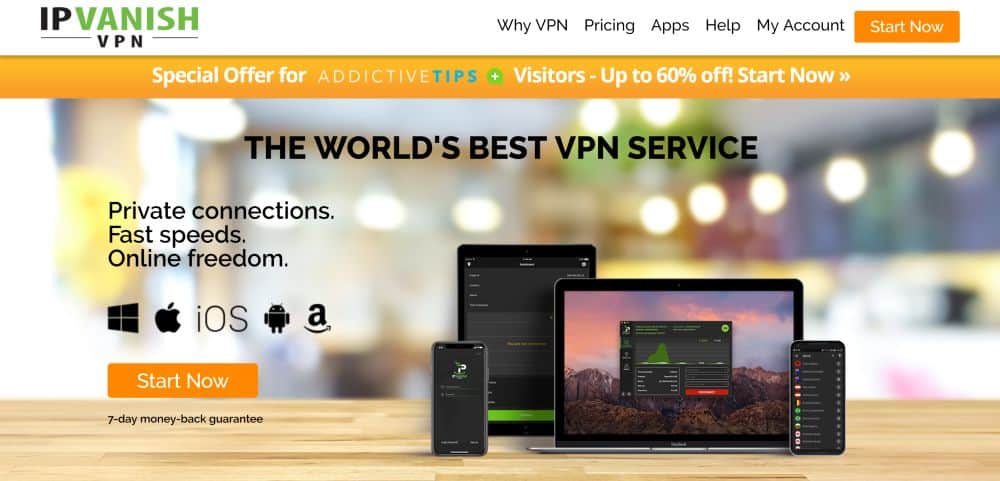
IPVanish provides strong anonymity by using over 40,000 shared IPs spread across 1,300 servers in over 60 countries. This large network makes it easy to switch virtual locations as well as obfuscate your identity, both useful features for checking out the dark web. IPVanish also has a strict zero-logging policy, uses 256-bit AES encryption for all its traffic, and features a kill switch for both Windows and Mac clients.
In addition to its strong security features, IPVanish delivers unlimited bandwidth, anonymous torrenting, unlimited P2P traffic, and some of the fastest servers on the VPN market.
Read our full IPVanish review.
4. VyprVPN
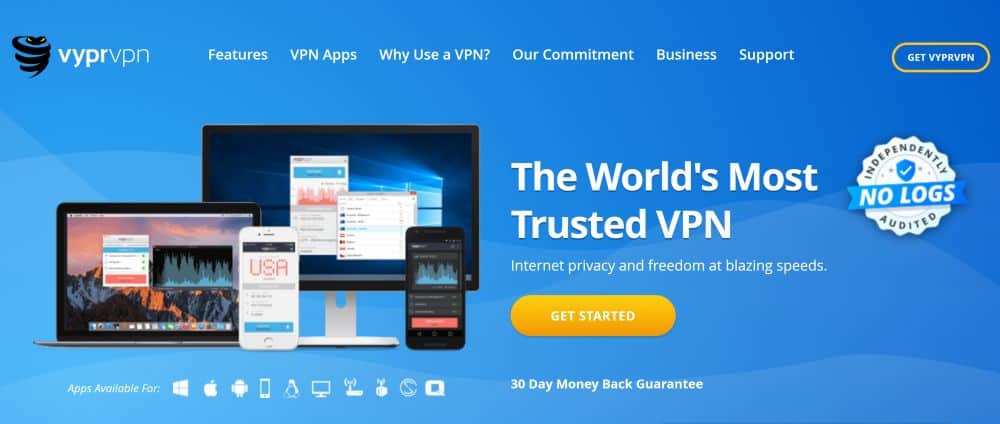
VyprVPN has a unique security advantage over other VPN providers. The company owns and operates its entire network of 200,000 IP addresses spread across 700 servers in 70 different locations, meaning no third parties have access to their computers. This extra privacy is backed by a zero-log policy along with a configurable kill switch for Windows and Mac versions of the software.
VyprVPN features a free three day trial for anyone interested in trying it without committing to a full month. Head to the VyprVPN website to learn more and get started.
Read our full VyprVPN review.
Using the Tor Browser
After a VPN, the second necessity for accessing the dark web is the Tor browser. Tor deploys its own network to protect your information by relaying it through multiple locations and securing it with 128-bit AES encryption. In other words, Tor takes the IP address assigned to you by a local service provider and switches it with a random, anonymous one from its own network. Tor is also the only way you can access .onion links, which is where almost all deep web content is hidden.
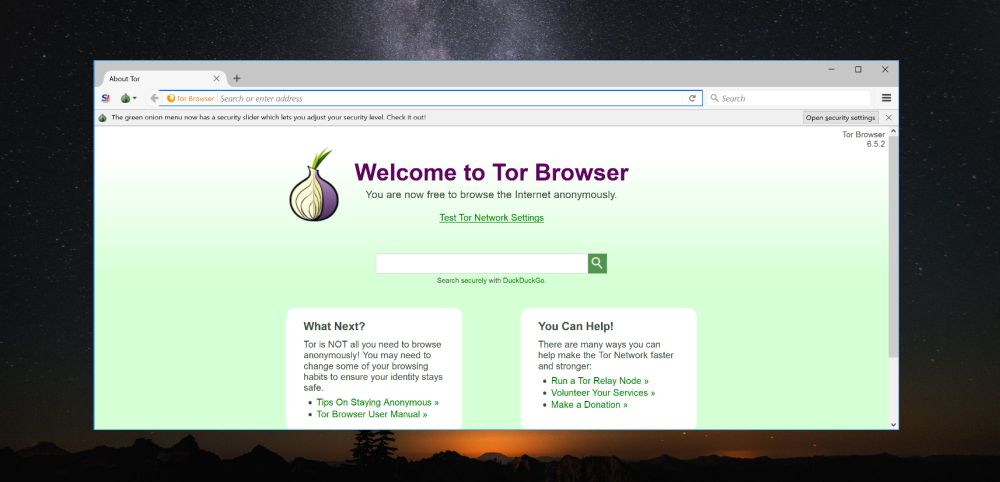
Using Tor with a VPN has a number of advantages, but setting things up the right way takes a little work.
The simplest method is to connect to your VPN, open the Tor browser, then use the internet as normal. This sends traffic through the Tor servers first, then through your VPN for encryption. The advantage here is you can mask Tor usage from your ISP, stopping them from tracing activity back to you. The disadvantage is that you aren’t really leveraging the anonymizing power of the Tor network, making this solution a little less desirable than the one below.
RELATED READING: How to use Tor with a VPN (IPVanish)
To get the most out of both Tor and your VPN, you’ll want to encrypt with a VPN first, send data through Tor, then decrypt with the same VPN. This solution provides an even greater level of anonymity and security but requires additional setup time to achieve. Installing the PORTAL router firmware is the easiest way to do this. PORTAL (which stands for “Personal Onion Router To Assure Liberty”) automatically forces your internet traffic through the Tor network, all you have to do is flash your router and PORTAL takes care of the rest. An alternative is the Whonix operating system which you can run from inside your current OS that accomplishes a similar feat as PORTAL.
Because you’re using two separate networks to encrypt and anonymize your traffic, using Tor with a VPN can create noticeable slowdown in your connection speeds. You also won’t be able to access sites that use Flash or Quicktime through Tor, as those technologies are insecure and blocked by default. In addition, some VPNs don’t allow Tor traffic, though the recommendations above are notable exceptions. Browsing the dark web can be sluggish, but if you’re going to browse at all, you need to do it safely.
INTERESTING READ: Peel the onion: Recognition of Android apps behind the Tor Network (pdf)
Running Tails OS
Using Tor with a VPN isn’t a perfect security solution. To take your privacy a step further, download and use the Tails OS. This lightweight operating system was designed to keep private data private and leave no trace of information behind. You use it, you walk away, clean and simple. It even deploys cryptographic tools to encrypt your e-mails and instant messages.
To install Tails OS you’ll need two USB sticks and a separate internet device to read instructions while the installation takes place. The website walks you through the process step by step.
- Use your web browser to download Tails OS for your operating system.
- Run the Tails installer and follow the on screen instructions.
- Restart your computer and boot directly into Tails OS.
- Enter your Wi-Fi or connection details to access the internet.
- Open Tor (included with the Tails OS download) and browse the dark web at your leisure.
What’s on the Dark Web?
The dark web has a multitude of uses, from communicating in secret to bypassing censorship laws, getting otherwise unobtainable goods, or conducting illegal sales and trades. Anything goes in a digital world where nothing is regulated or monitored, even the silly and the mundane.
- Darknet markets – The digital version of a back alley transaction, darknet markets sell everything from counterfeit goods to drugs, weapons, software exploits, stolen credit card numbers, and other illegal services. Some are peer to peer and run completely on the honor system, while others have a basic infrastructure to ensure payment and goods are evenly exchanged. All carry a greater security risk than placing an order on Amazon.
- Cryptocurrency tumblers – Digital currencies are favored on the dark web as a means to anonymously transfer money for a variety of transactions. In an online version of money laundering and offshore bank accounts, cryptocurrency tumblers mix tainted or traceable digital coin transactions with anonymized ones, adding an extra layer of privacy to financial transactions.
- Hacking groups – Hackers often use the dark web for communicating as well as buying or selling their services.
- Scams – Cloned websites and false darknet markets are commonplace in the deep web. Even with VPNs and Tor active, it’s still possible to get taken advantage of.
- Pointless goods – Do you want to buy carrots from an anonymous stranger? How about fresh baked pretzels? All sorts of strange and unusual sellers have set up shop on the dark web. If you’re willing to take a risk, you might end up with something unique.
- Puzzles and ARGs – A surprising number of alternate reality games host fragments of their puzzles on the dark web to prevent random web surfers from stumbling upon answers. It also adds a level of secrecy and mystery to the game.
- Social communities – People get together just to talk on the dark web, too. The distinct advantage here is bypassing privacy and data harvesting issues from networks like Facebook and Twitter.
How to find Dark Web content
Sites on the dark web were designed to stay out of the public eye. Instead of using identifiable URL titles, most sites use a string of random characters at a .onion domain, making it nearly impossible to guess a website’s location. How do you find something that doesn’t want to be found? By tapping into the community of dark web users.
The best way to get access to dark web content is to look for aggregate sites. These often pop up in the form of wikis or simple HTML lists available on the surface web. Start with a search engine that doesn’t track your queries or account details, such as DuckDuckGo. The Hidden Wiki is a good source for a massive number of dark web links, though its URL is known to change and the site isn’t always available.
How to access .onion Sites
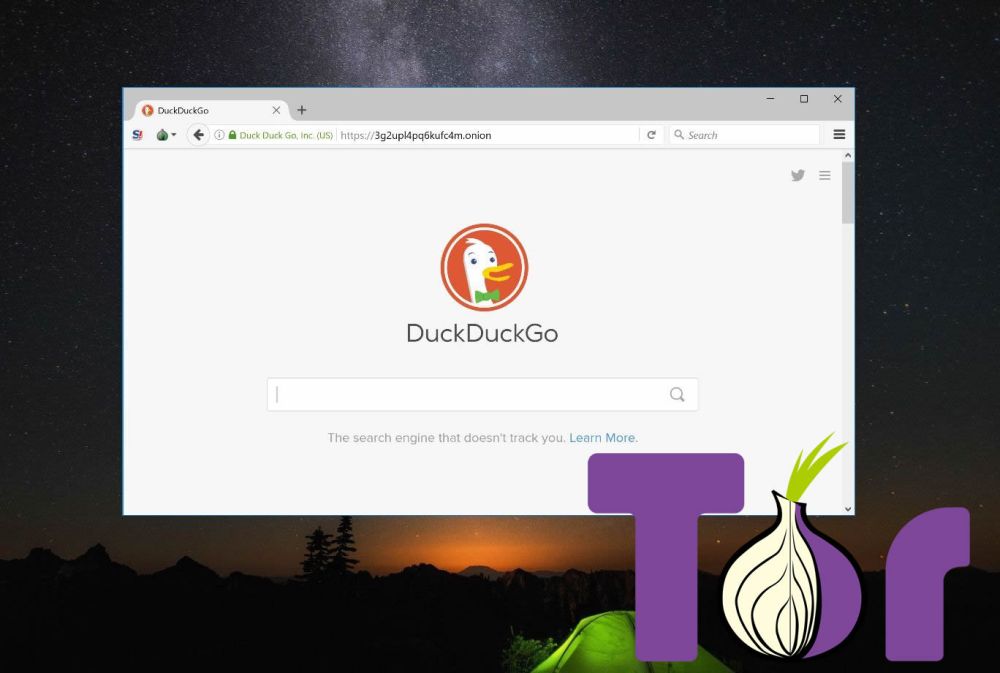
If you’ve researched dark web content in the last decade, you’ve no doubt seen a strange domain suffix appear a number of times. The .onion domain designates anonymous, hidden sites that can only be accessed through the Tor network. If you type an address that uses .onion into your browser you won’t get any results. However, if you type it into the Tor browser’s address bar, you’ll see what the site has to offer.
If you’re a little curious about .onion domains and want to take a quick look at a URL you found, there are free extensions for both Firefox and Chrome that leverage the Tor network without requiring the full Tor browser. As a warning, you won’t gain the benefits of Tor anonymity while using these extensions, so only grab them as a last resort.
What is Silk Road?
In 2011 a site called Silk Road opened on the dark web. This anonymous marketplace was largely used to buy and sell illegal drugs without the risk of providing one’s identity or credentials. Seller accounts could be opened for a small fee and transactions were conducted in bitcoin using an automated escrow account for verification.
A significant amount of buzz was generated in 2013 when the FBI shut down Silk Road and seized nearly $30 million worth of bitcoins. The site founder was also identified and formally charged. A few months later a new version of Silk Road appeared on the dark web, this one run by a new set of admins. In 2014 Silk Road 2.0 was also seized and shut down. A third version of Silk Road exists today, and dark web users agree that if it gets shut down, a fourth version would crop up in its place.
Conclusion
If this article has taught you anything, it’s that the deep and dark web require caution. Your first line of defense is VPN encryption, which anonymizes your Internet connection against most forms of surveillance and cyber attacks. We’ve recommended a few top-tier VPN providers which, when combined with good common sense, will keep you safe in the further reaches of the Internet.
What is your experience with the dark and deep web? Do you have any tips for staying safe? Let us know below.
If you need a VPN for a short while when traveling for example, you can get our top ranked VPN free of charge. NordVPN includes a 30-day money-back guarantee. You will need to pay for the subscription, that’s a fact, but it allows full access for 30 days and then you cancel for a full refund. Their no-questions-asked cancellation policy lives up to its name.

Thanks for the article. It was very helpful. See u on the dark side.
Surprised ExpressVPN wasn’t mentioned. They’re the only VPN service to offer their own .onion service.